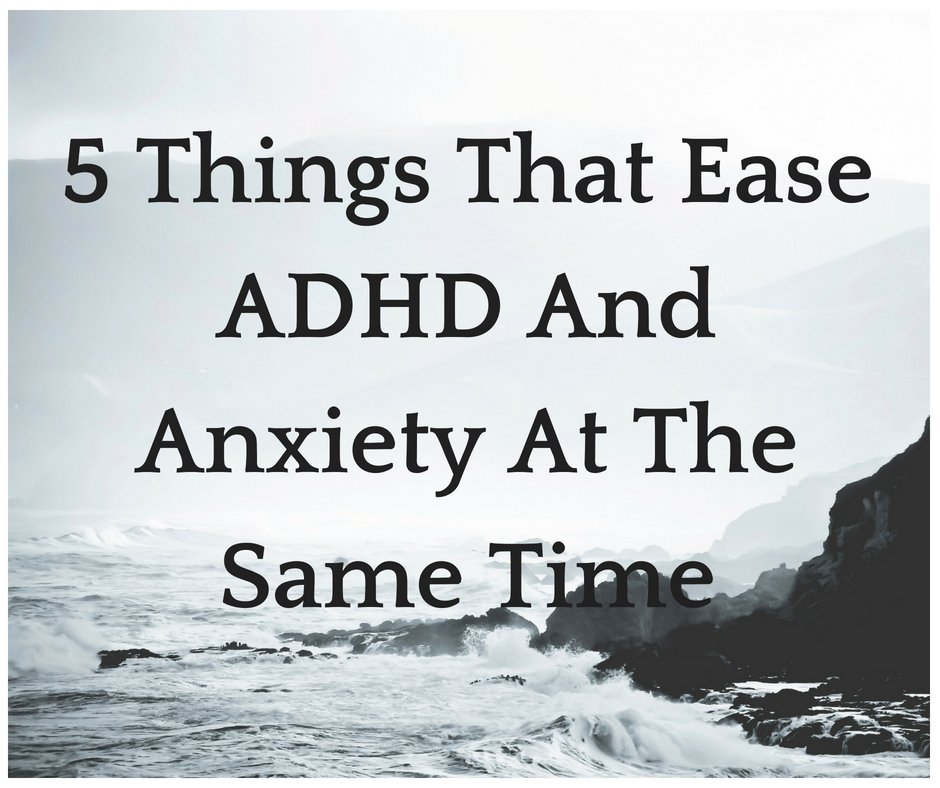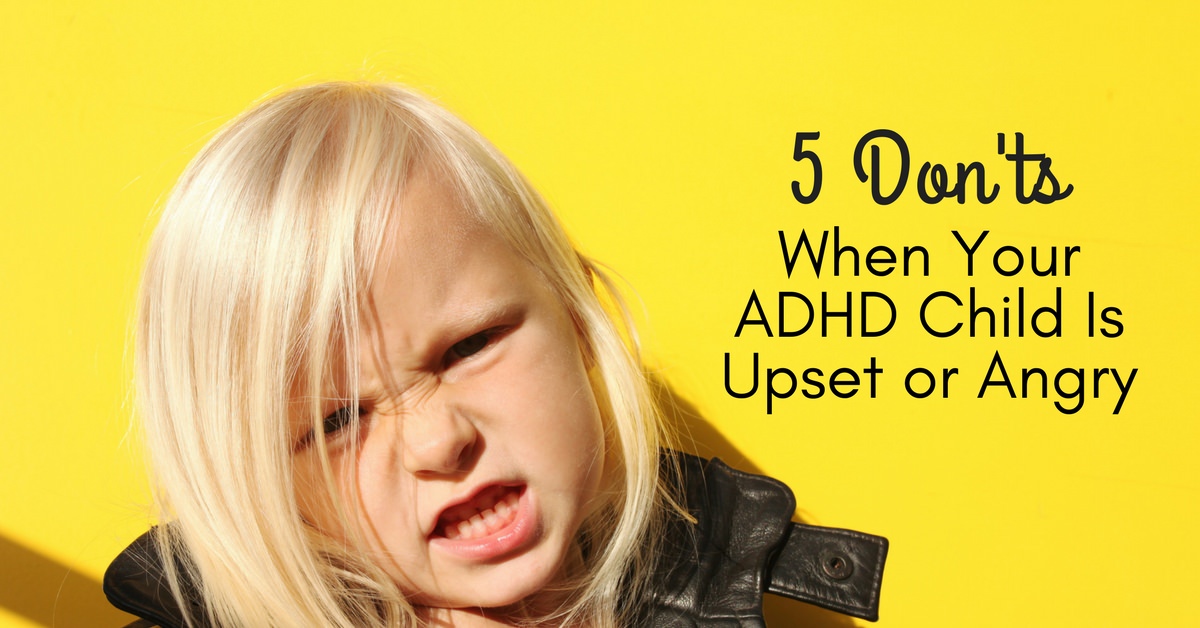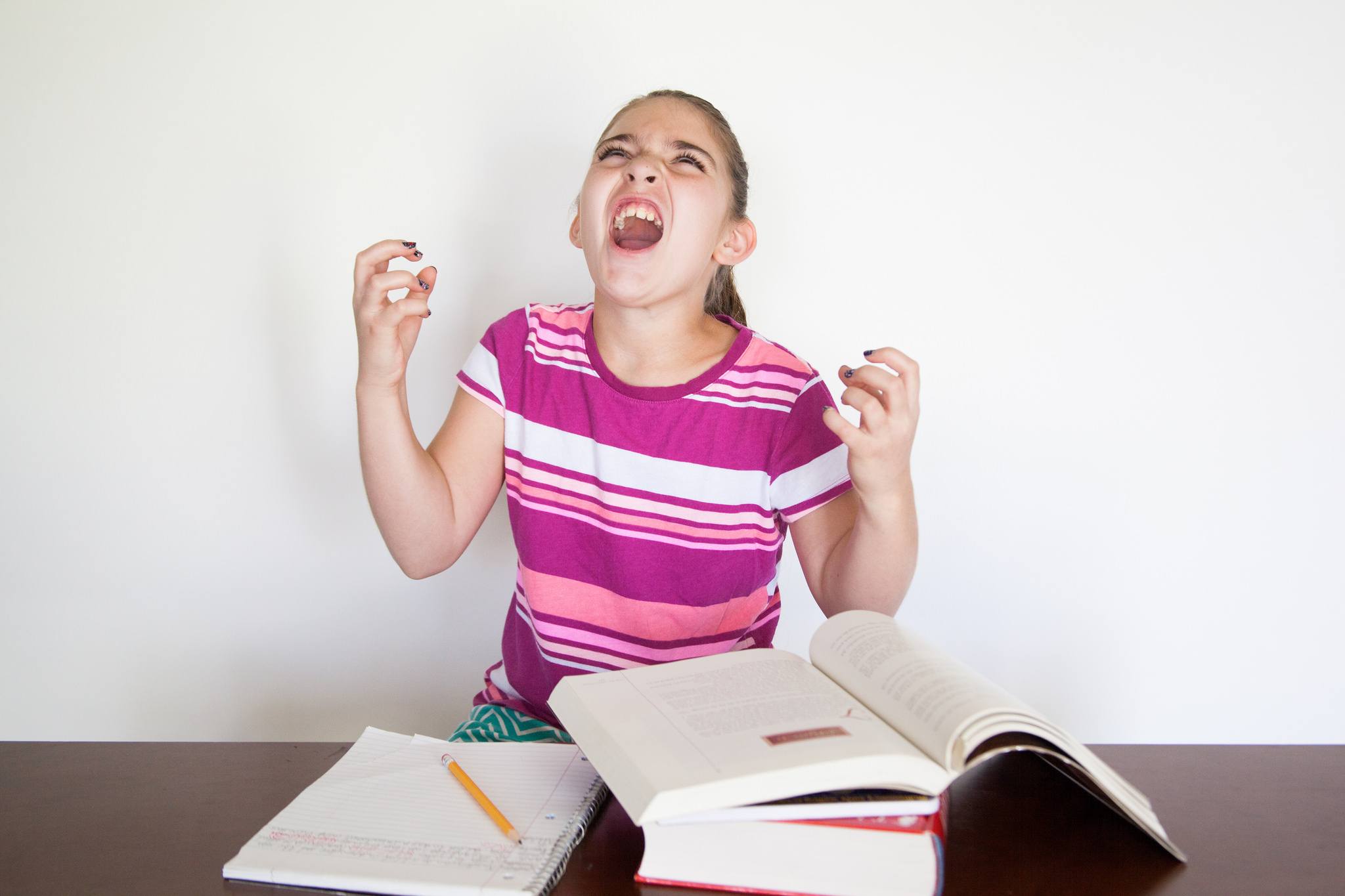Adults with both ADHD and anxiety are not difficult to find. In fact, they comprise half of the adult ADHD population. If you’ve been diagnosed with ADHD and anxiety, you’ll find the following five habits useful for both disorders. Try one, two or all of the above today to deal an extra strong blow to those pesky ADHD and anxiety symptoms!
How Are ADHD And Anxiety Linked?
According to the Anxiety and Depression Association of America, anxiety disorders occur in as many as 50% of ADHD adults. Not only can these conditions coexist, but the challenges that ADHD poses worsen anxiety by their very nature.
How do you know if you have anxiety disorder or are just experiencing everyday anxiety? A handy table by the ADAA lists a few ways, including the comparison between being anxious over a specific event (job loss or break-up) compared to unsubstantiated worry that interferes with daily life.
When it comes to treating ADHD and anxiety, health professionals are trained to treat the disorder that’s causing the most impairment. Medications and cognitive-behavioral therapy are popular treatments for both.
If ADHD is the cause of anxiety, treating the ADHD may reduce the anxiety. If anxiety is independent of ADHD, however, a doctor will determine the proper medication. One health professional may decide to treat the anxiety first; another may treat both conditions simultaneously,” the ADAA reports.
Journaling
Journaling has the magical way of taking the power away from the items that are causing the anxiety. Don’t know what’s causing your anxiety? Journaling can help you uncover this as well. There is no right or wrong way to journal. It can be something as informal as buying a blank book and keeping a diary. It could even be a daily 750-word brain dump, where you go in not knowing what’s bothering you, but come out with a few prime suspects. On the other hand, you can go with something more structured if you need some help grappling with daily tasks. For example, the SELF Journal (aff) by Best Self Co. forces you to name specific quarterly goals, which then trickle down to daily micro-goals.
Physical Activity
Dance it out. Or walk it out. Or run it out. We’ve all heard the many benefits of physical activity, and they are things that help both ADHD and anxiety symptoms. Not only are endorphins released when you exercise (nature’s painkiller!), exercise is also known to improve concentration and prolong focus. Since it’s something you’ve probably had on your list to do anyway (if you aren’t already), you can kill two birds with one stone by helping ease both conditions with a single activity.
So how much exercise should you do? First, make sure you’re picking an activity that you enjoy or forget about it! Start with short mini-goals of 10 to 15 minutes a day. Once you have that on lock, you can start to build it up, either shooting for one long exercise session or multiple mini-sessions throughout the day. The Mayo Clinic recommends that adults receive at least 150 minutes of moderate aerobic activity a week. Need help staying motivated? Try wearable technology such as the FitBit to track your progress in a fun, pretty dashboard.
Cognitive Behavioral Therapy
Have you ever considered cognitive behavioral therapy (CBT) as a means to get both ADHD and anxiety under control? According to the National Alliance on Mental Illness, CBT is a scientifically proven practice that is in short supply as demand for therapists in this field is high.
“The core principles of CBT are identifying negative or false beliefs and testing or restructuring them. Oftentimes someone being treated with CBT will have homework in between sessions where they practice replacing negative thoughts with more realistic thoughts based on prior experiences or record their negative thoughts in a journal,” NAMI reports.
Conclusion
None of these habits are probably a shocker to you, but what may be surprising is how, when strategically executed, they can pack a real punch to your ADHD and anxiety symptoms. Journaling or exercising may sound like fine advice in isolation, but when you start to see the same recommendations re-emerge for multiple conditions, it’s even more motivating to give them a try!
If you have insurance, check your carrier’s website for providers that are within your network. If you are uninsured or underinsured, check out your city’s local mental health resources that may be available to you for free or on a sliding scale. I’ve been practicing CBT since 2009 and it has absolutely been a game-changer!
Meditation
Meditation’s commonly associated with anxiety, but did you know it is also used to treat ADHD? Much like journaling, meditation forces you to slow down that pinball-like mind. There is no right or wrong way to meditate; all you must do is find the right place, the right position, and the right set of exercises that work best for you. For me, it’s laying in a dark room with complete silence, with my Himalayan salt lamp dimly lit and a hypnotherapy recording running through my earbuds. Sometimes I’m so zoned out I almost fall asleep. This may not look the same to you. You may find that you prefer sitting upright or participating in movement while you meditate. Check out these amazing meditation tips from ADDitude magazine to get started.
“The big secret, which nobody seems to clue ADDers in on, is that you don’t have to sit in the lotus position at all…you don’t even have to sit down to meditate or (thank God!) stop moving. You don’t need a mantra, a guru, or notes from your trek to India to do the meditation thing correctly,” writes ADHD coaches Kate Kelly and Peggy Ramundo.
Herbal Supplements
For those who are unable or unwilling to take prescription medication, herbal supplements may be a viable option. According to the Canadian College of Naturopathic Medicine, this is a medically sound practice that should occur under the supervision of a naturopathic doctor.
“Herbal medicines have long been used to relax the nervous system, relieve stress and calm the mind,” the CCNM reports, citing chamomile, skul cap, oat straw
, catnip, lemon balm
, hawthorn berry
, gotu kolu, valerian
, and rosemary
as viable herbal remedies for ADHD.
I personally have tried valerian root supplements and Sleepytime Extra
tea, which includes chamomile and valerian root. While it’s obviously going to be no comparison to what you would experience with prescription medication, I did notice a difference and will turn to them from time to time if I’m avoiding medication and need to take the edge off.
Conclusion
None of these habits are probably a shocker to you, but what may be surprising is how, when strategically executed, they can pack a real punch to your ADHD and anxiety symptoms. Journaling or exercising may sound like fine advice in isolation, but when you start to see the same recommendations re-emerge for multiple conditions, it’s even more motivating to give them a try!





